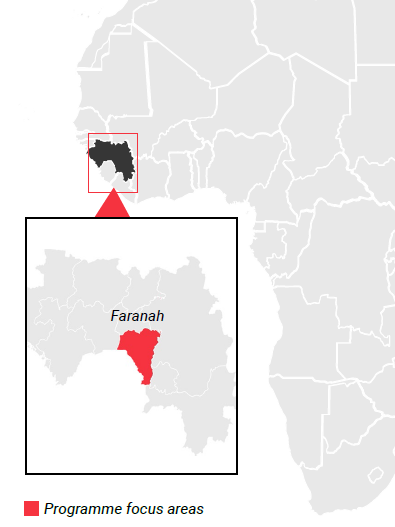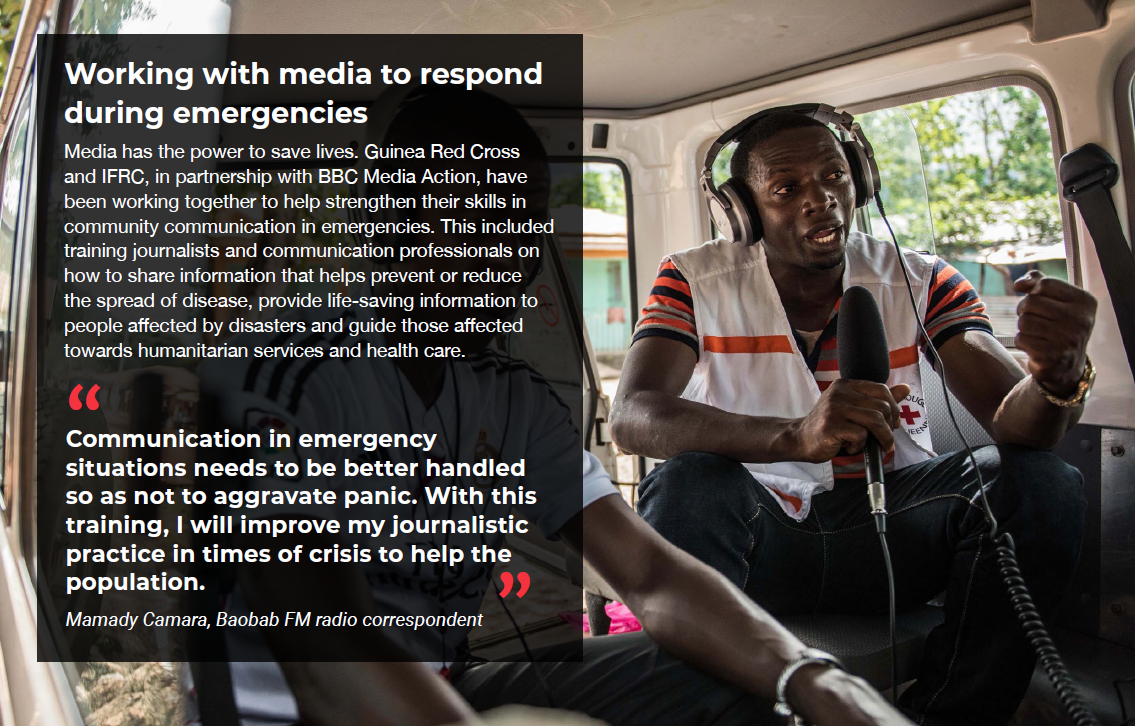
More than half of the population in Guinea live below the poverty line, with alarming food insecurity and malnutrition rates, particularly in rural areas. It was only six years ago that the country faced the worst Ebola outbreak in history, which killed more than 11,000 people in Guinea alone. The country also faces a relatively weak health system with critical shortages of health workers.
SGuinea Red Cross, with support from the International Federation of the Red Cross and Red Crescent Societies (IFRC) and funding from USAID, has been helping communities prepare and prevent the spread of diseases. Volunteers are sensitizing communities about the health risks around diseases including cholera, yellow fever, viral haemorrhagic fevers and rabies. Focused in the Faranah region, Red Cross works with governments, communities, local responders and humanitarian partners to collectively prepare and respond to epidemics.
Through an extensive network of community-based volunteers, Guinea Red Cross is providing critical information, surveillance and referrals in the local and hard-to-reach areas in coordination with the Ministry of Health, Ministry of Environment and Ministry of Agriculture and Livestock.


We are ensuring communities have itical information about the spread of diseases and how to prevent them, systems to detect outbreaks and mechanisms that ensure information sharing and community engagement.Activities include:
• Engaging communities through house-to-house visits, mobile cinemas and group discussions.
• Strengthening community-based surveillance systems.
• Engaging, training and collaborating with community influencers, such as religious leaders, healers and traditional burial attendants.
Sierra Leone Red Cross has more than 2,500 volunteers across the country which gives extraordinary reach into communities. In their supporting role to the government, they are often central to emergency responses amid outbreaks. Activities include:
• Contingency planning with government and key partners.
• Strengthening systems to enable a fast, scaled-up response.
• Strengthening partnerships with different sectors and ministries.
• Training and readying communitybased volunteers.
.Epidemics not only threaten lives but all aspects of society, including trade, transportation and education. We work with a variety of key stakeholders and the media in epidemic preparedness and response. Activities include:
• Helping prepare a variety of sectors to respond (including those affected by both animal and human health).
• Training media to communicate lifesaving information to affected populations.
• Mapping critical data to help responders make informed decisions when a health crisis hits.